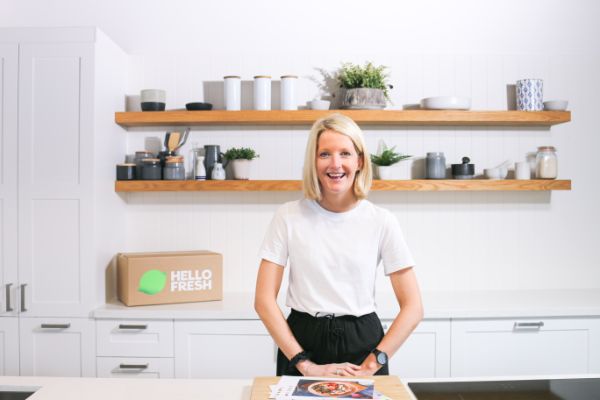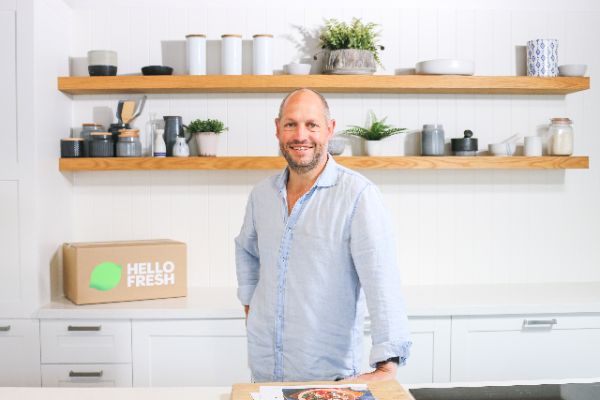Kiwi Household Annual Food Wastage Estimated At $3bn - Research
Experts are advising Kiwis to become more conscious of their food wastage with new research showing more than 70% of NZ households discard uneaten food every week.
The study of 1,000 New Zealanders shows three quarters (76%) of the population discard food to the value of $25 every week, which for a household on a budget of $150 represents around a sixth of their total food spend for the week[1].
Aggregating the total amount of food thrown away across all households in New Zealand would represent $3 billion in food wastage each year[2].
Almost three quarters (73%) of New Zealanders have felt guilty about throwing away food.
This emotional response was noticeably higher in females (79%) and young adults (85%).
The research shows how we classify food waste varies between individuals however eight in 10 (80%) of respondents define it as throwing out some form of uneaten food - including leftover meals, uncooked food or discarding takeaways.
Leftover cooked meals are the most likely food waste making up 30% of responses, with uneaten fruit and vegetables next most common on 27% and baked goods such as bread-making up a tenth of food waste. Unsurprisingly, single-person households were the most likely group to have leftover bread or baked goods (33%) potentially due to the lack of small portion sizes available from food retailers such as supermarkets.
A lack of meal planning is given as the most common reason for having leftover food - with a quarter (25%) of households admitting this type of waste. This lack of meal planning was dominant in single-person households where almost half (48%) said this was the reason.
Eating out more than planned or purchasing takeaways catches out a sixth (17%) of Kiwis while purchasing excess quantities at the supermarket is the next most likely reason for a seventh (14%) of respondents.
The HelloFresh research also shows 30% of Kiwi households have made an effort to reduce food waste as a result of COVID.
Dietitian Hannah Gilbert, Director of Culinary Innovation and Operations at HelloFresh says the meal kit model has inherent advantages in meal planning and reducing food waste at home - compared to traditional grocery shopping.

“By having weekly recipes planned and ingredients pre-portioned and delivered to our customers, it means people are less likely to over shop or look to takeaway options during the week.”
“The exact portion sizes are then provided in each meal kit which means families will also be left with basically zero food waste,” she says.
Gilbert says any surplus food is donated to local food charities such as KiwiHarvest.
KiwiHarvest, a national food rescue charity, collects food from retailers before it goes to waste and distributes it to those in need.
Blandina Diamond, KiwiHarvest general manager, says the surplus food is used to support the thousands of Kiwi families and communities who are struggling financially.
“With the country feeling the tail of economic fallout from the pandemic, the need for food charities has soared. Latest figures suggest the ‘new normal’ could see increases in demand from those facing financial hardship of 40% per annum.
“HelloFresh has helped us meet a part of this demand since they launched two years ago. As their business has grown, so too have their donations of fresh produce – which helps provide our community with a wide variety of nutritional and vegetables that might not otherwise be available to us,” she says.
Tom Rutledge, HelloFresh NZ CEO, says the aspirational goal of reducing food waste is fundamental to their business model.

He says they also work with suppliers throughout the country to carefully forecast demand which means the right quantities of fresh produce can be growing in the fields one day, and packed into meal kits for delivery to customers the next day.
“At a time when so many are struggling to put food on their table, there is more reason than ever to be conscious about over-purchasing food.
“The feedback from our customer base is that the opportunity to reduce weekly food waste is a key driver of purchase of our meal kits and we are also immensely proud that we can support essential community organisations such as KiwiHarvest through a consistent supply of fresh produce,” he says.
[1] HelloFresh commissioned an independent research agency to conduct an online survey through the September 2020 Omnibus which surveyed n=1016 New Zealanders using a nationwide sampling framework. The results are then weighted to Statistics New Zealand census gender, age and location to give a representative sample of the population.
[2] Aggregated data based on consumer estimations of value of food discarded each week by their household - in the HelloFresh study.


 Infoblox: Dancing With Scammers - The Telegram Tango Investigation
Infoblox: Dancing With Scammers - The Telegram Tango Investigation Consumer NZ: This Mother’s Day, Give The Gift Of Scam Protection And Digital Confidence
Consumer NZ: This Mother’s Day, Give The Gift Of Scam Protection And Digital Confidence NZ Airports Association: Airlines And Airports Back Visa Simplification
NZ Airports Association: Airlines And Airports Back Visa Simplification Netsafe: Statement From Netsafe About Proposed Social Media Ban
Netsafe: Statement From Netsafe About Proposed Social Media Ban The Reserve Bank of New Zealand: 2024 General Insurance Stress Test Results Published Today
The Reserve Bank of New Zealand: 2024 General Insurance Stress Test Results Published Today  Worldline: School Holidays And Long Weekends Change Regional Spending Patterns In April
Worldline: School Holidays And Long Weekends Change Regional Spending Patterns In April